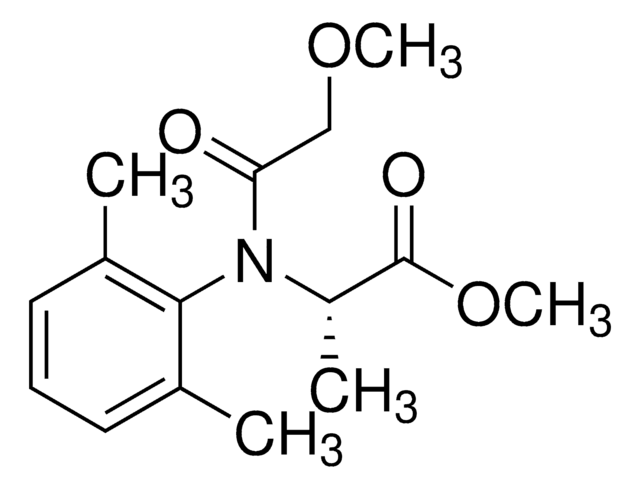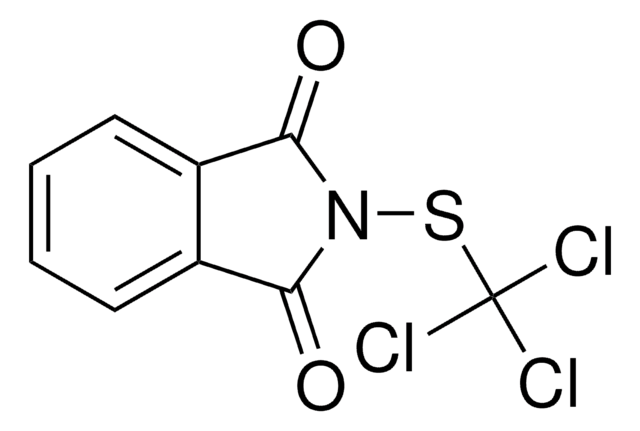32808
Metalaxyl-M
PESTANAL®, analytical standard
Synonym(s):
N-(2,6-Dimethylphenyl)-N-(methoxyacetyl)-D-alanine methyl ester, Mefenoxam
About This Item
Recommended Products
grade
analytical standard
Quality Level
product line
PESTANAL®
shelf life
limited shelf life, expiry date on the label
technique(s)
HPLC: suitable
gas chromatography (GC): suitable
application(s)
agriculture
environmental
format
neat
SMILES string
COCC(=O)N([C@H](C)C(=O)OC)c1c(C)cccc1C
InChI
1S/C15H21NO4/c1-10-7-6-8-11(2)14(10)16(13(17)9-19-4)12(3)15(18)20-5/h6-8,12H,9H2,1-5H3/t12-/m1/s1
InChI key
ZQEIXNIJLIKNTD-GFCCVEGCSA-N
Looking for similar products? Visit Product Comparison Guide
Related Categories
General description
Application
- Maize samples and greenhouse tomato samples by acetonitrile-based extraction and dispersive liquid–liquid microextraction (DLLME) followed by gas chromatography–mass spectrometry (GC-MS).
- Onion samples by matrix solid-phase dispersion (MSPD) followed by liquid chromatography–tandem mass spectrometric detection (LC-MS/MS).
Legal Information
Signal Word
Danger
Hazard Statements
Precautionary Statements
Hazard Classifications
Acute Tox. 4 Oral - Eye Dam. 1
Storage Class Code
10 - Combustible liquids
WGK
WGK 3
Flash Point(F)
Not applicable
Flash Point(C)
Not applicable
Personal Protective Equipment
Choose from one of the most recent versions:
Already Own This Product?
Find documentation for the products that you have recently purchased in the Document Library.
Customers Also Viewed
Our team of scientists has experience in all areas of research including Life Science, Material Science, Chemical Synthesis, Chromatography, Analytical and many others.
Contact Technical Service













